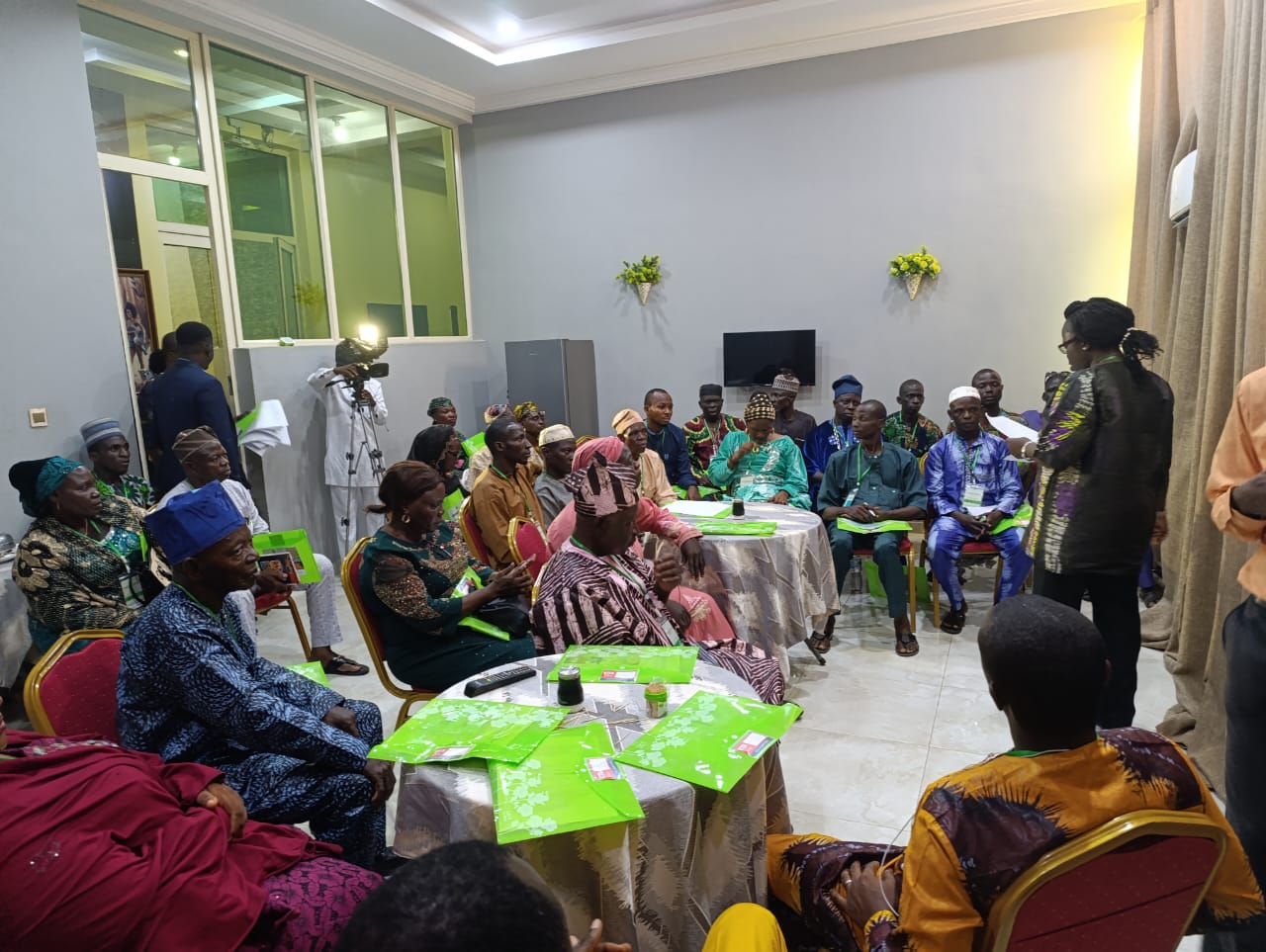Kwara State Inception Workshop: Engaging Communities for Climate Resilience
/

On May 15, 2024, the PALM-TREEs project team held an inception workshop at Monarchs Luxury Palace Hotel in Ilorin, Kwara State, bringing together 110 participants from various sectors. Attendees included representatives from rural communities, government ministries, NGOs, academia, and the press, with a significant turnout of 59 community members from 28 communities across nine local government areas.
In the opening of the workshop, Prof. Grace Oloukoi set the context for the meeting, emphasizing the importance of gathering input from stakeholders to understand how climate extremes impact livelihoods in Kwara State. Prof. Mayowa Fasona, the team lead, highlighted the project’s focus on marginalized groups—women, the elderly, and disabled individuals—who often bear the brunt of climate events. He engaged participants in local Yoruba to ensure inclusiveness, explaining the project’s objectives and methodologies.
Participants broke into thematic groups—Policy on Climate Change, Flood Extremes, and Drought—to discuss pressing issues. The discussions revealed a strong awareness of the climate challenges in their communities, including significant impacts on food security, health, and livelihoods due to droughts and floods. Stakeholders expressed a willingness to collaborate with the PALM-TREEs research teams, hoping the outcomes would strengthen their resilience.
The policy group confirmed the vulnerability of the selected local government areas to climate extremes but noted a lack of comprehensive policies addressing these challenges. Current climate-related issues are managed under the Ecology and Erosion Control Unit, with an intergovernmental Climate Change Committee recently established to draft a dedicated climate policy for the state. Participants identified inadequate funding and capacity building as significant barriers to effective policymaking.
The workshop received extensive media coverage, with interviews conducted by local press representatives and a prepared press release distributed to capture the event’s purpose. While the meetingt was largely successful, challenges were noted, particularly the underrepresentation of women and individuals with disabilities. The PALM-TREEs team is committed to addressing these gaps in future engagements and during fieldwork.
The insights gathered from this workshop will play a crucial role in shaping the research and interventions aimed at building resilience in Kwara State communities facing climate extremes.
In the opening of the workshop, Prof. Grace Oloukoi set the context for the meeting, emphasizing the importance of gathering input from stakeholders to understand how climate extremes impact livelihoods in Kwara State. Prof. Mayowa Fasona, the team lead, highlighted the project’s focus on marginalized groups—women, the elderly, and disabled individuals—who often bear the brunt of climate events. He engaged participants in local Yoruba to ensure inclusiveness, explaining the project’s objectives and methodologies.
Participants broke into thematic groups—Policy on Climate Change, Flood Extremes, and Drought—to discuss pressing issues. The discussions revealed a strong awareness of the climate challenges in their communities, including significant impacts on food security, health, and livelihoods due to droughts and floods. Stakeholders expressed a willingness to collaborate with the PALM-TREEs research teams, hoping the outcomes would strengthen their resilience.
The policy group confirmed the vulnerability of the selected local government areas to climate extremes but noted a lack of comprehensive policies addressing these challenges. Current climate-related issues are managed under the Ecology and Erosion Control Unit, with an intergovernmental Climate Change Committee recently established to draft a dedicated climate policy for the state. Participants identified inadequate funding and capacity building as significant barriers to effective policymaking.
The workshop received extensive media coverage, with interviews conducted by local press representatives and a prepared press release distributed to capture the event’s purpose. While the meetingt was largely successful, challenges were noted, particularly the underrepresentation of women and individuals with disabilities. The PALM-TREEs team is committed to addressing these gaps in future engagements and during fieldwork.
The insights gathered from this workshop will play a crucial role in shaping the research and interventions aimed at building resilience in Kwara State communities facing climate extremes.
Categories
Countries
CLARE Pillars
CLARE Themes
CLARE Topics
Published
CLARE Projects
CLARE Partners

